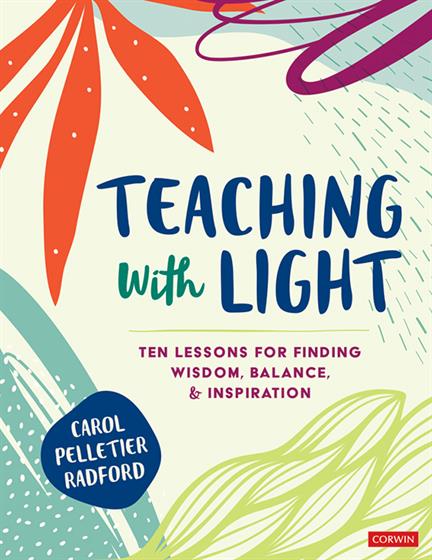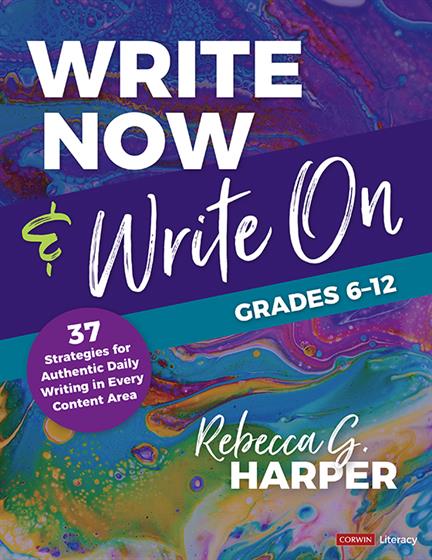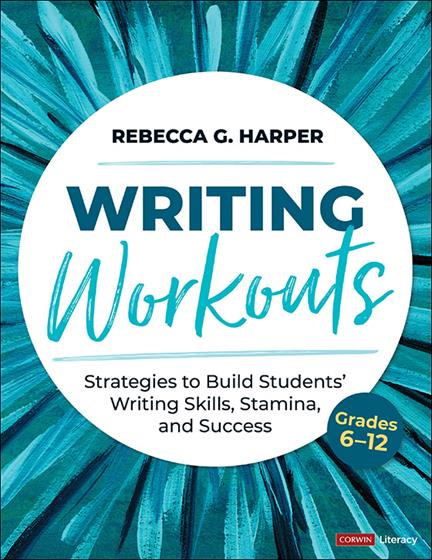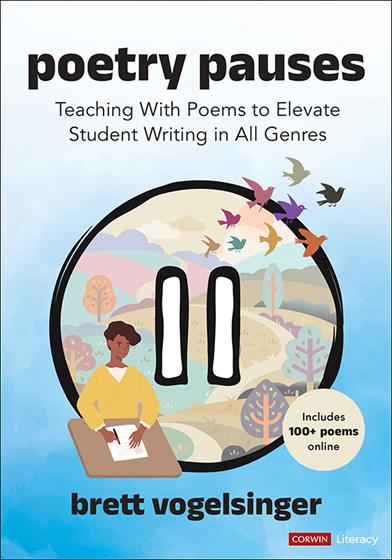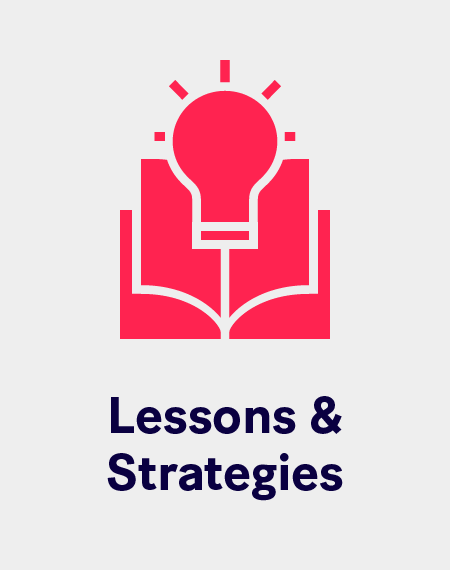
Follow Your Heart
Guest(s): Brett Vogelsinger and Meg Roa
Date: 09/11/2024
Run time: 43:28
Season 3, Episode 1
Welcome to Season 3 of the Teacher to Teacher podcast! Join host Carol Pelletier Radford and her inspiring guests as they share pivotal moments, successful classroom strategies, and tips to stay healthy. Each episode of Season 3 is based on the 10 lessons from Carol's book, Teaching With Light (Corwin, 2021).
In Episode 1, hear from Brett Vogelsinger and Meg Roa in "Follow Your Heart" as they share their experiences, practical advice, and ways to stay inspired!
Brett is author of Poetry Pauses (Corwin, 2023).
Bonus Track: Carol’s Follow Your Heart story from Teaching With Light
When The Guidance Counselor Told Me No
Bonus Youtube: Follow Your Heart hand mudra
Listen, review and subscribe on: Apple, Spotify, YouTube,
Episode Audio
[00:00:03.10] INSTRUCTOR: Welcome to Corwin's Teacher to Teacher podcast
with host Carol Pelletier Radford. Carol is an experienced classroom teacher,
university educator, founder of mentoringinaction.com, and author of four best
selling professional books for teachers. She believes the best form of
professional learning happens when teachers engage in authentic conversations
and share their wisdom.
[00:00:23.99] In every episode, Carol and her guests share stories about
pivotal moments in their careers, successful classroom strategies, and personal
actions they take to minimize stress and stay healthy. The Teacher to Teacher
podcast is a place to engage in authentic conversation and reflection with
experienced educators. We hope these conversations will energize you, keep you
inspired, and remind you why you chose to become a teacher.
[00:00:49.47] CAROL PELLETIER RADFORD: Welcome to season three of the
Teacher to Teacher podcast. I am your host, Carol Pelletier Radford. And I'm
happy to be part of a conversation with two experienced educators. The theme
for season three is based on the book I wrote titled Teaching With Light, 10
Lessons for Finding, Wisdom, Balance and Inspiration. Each of the 10 episodes
for this season mirror the 10 lessons in the book. Today's episode is titled
lesson one, Follow Your Heart.
[00:01:25.29] And we have two extraordinary educator guests with us. I'm
going to have them introduce themselves to all of you. So Meg, share who you
are, what you're currently doing, and what your role is, and what you taught
when you were teaching.
[00:01:43.23] MEG ROA: Hi, Carol. Thank you so much for having me on today.
It's such an honor to be here with you and to meet our other guests, Brett. I
am in my 32nd year of education and Volusia County schools, which is in
Florida, near Daytona beach. And I've had lots of different experiences.
[00:02:01.00] I started out in elementary where I taught kindergarten and
second grade. And then when I received my master's in reading, I moved up to
middle school and spent a little time there as a reading resource teacher like
before coaching was a thing.
[00:02:15.97] And then I moved to the high school level where I taught ELA
and intensive reading and made the jump to the district after-- I don't know--
13 years at high school. And there I did-- I worked in the professional
learning office. And where I currently reside is in the recruitment, support,
and retention office overseeing the new teacher program.
[00:02:38.59] CAROL PELLETIER RADFORD: So you don't have any experience at
all in education, right?
[00:02:43.03] MEG ROA: No.
[00:02:43.68] CAROL PELLETIER RADFORD: I feel like you're like a one woman
show. You have all of this background. Welcome, welcome. And I have met Meg in
person and collaborated with her teachers and mentors. And you are
extraordinary. Just your energy and the ideas that you're bringing forward
which we'll talk a little bit about are amazing. And Brett, please introduce
yourself and your experiences as a teacher currently teaching.
[00:03:13.47] BRETT VOGELSINGER: Hi yeah, I'm Brett Vogelsinger. Thanks for
having me here today, Carol. I am a teacher in a public high school in Bucks
County, Pennsylvania, which is suburban Philadelphia region. I teach 10th grade
English, AP Lit with seniors, and creative writing. So I'm happy to be here to
talk about all things learning.
[00:03:31.85] CAROL PELLETIER RADFORD: All things learning. And we're going
to talk a little bit about poetry and how it inspires you and how you use that
with your students. So thank you for writing a book about that, that we can all
learn from you. And I love that you're in the classroom using it. So thank you.
[00:03:50.15] So before we dive into this is the launch of the season, the
lesson one. But I want to ask you, when you heard the title Teaching With
Light, I know why I titled the book that way, but I'm curious to see or hear
what you think of that title. Brett, what came up for you when you were like,
oh, the theme for the year is Teaching With Light, what does that mean?
[00:04:17.29] BRETT VOGELSINGER: Yeah, when I hear that title, it makes me
think of teaching with hope and with a sense of endurance in the face of
difficult times, maybe systemically or personally going through difficult times
and keeping that hope alive.
[00:04:30.85] CAROL PELLETIER RADFORD: And we do need that. And when I wrote
the book, I was writing it before COVID and finished it during COVID. And we
all know we needed hope during that time. And it is a book more about wellbeing
and the whole teacher and all the all the things we need. But Meg, what did you
think when you heard teaching with light? How does that resonate with you?
[00:04:54.61] MEG ROA: Yeah, I connected it to the word passion that when
you find your passion in teaching, which is really what most educators get into
it, get into education for that, we continuously remind yourself about your
passion. Share it, collaborate with others, because that's how we continue to
grow and spread the light of education.
[00:05:17.03] CAROL PELLETIER RADFORD: Thank you. So the 10 lessons in this
season three podcast will have different guests and different authors. Teacher
to Teacher, two teachers talking to each other who've never met each other
before, talking through these lessons.
[00:05:32.27] And let's begin with the first one that I wrote for the book
with my heart leading the way. So what does following your heart mean? And I
want each of you to share like a pivotal moment in your career that comes to
mind that relates to you having to make a decision to follow your heart and not
just do what you think? I should just do this like, that your heart had some
play in that, Meg, let's just keep going with you. What is your story?
[00:06:10.44] MEG ROA: OK. I really thought about when I moved. I made the
decision to move from the classroom to the district level. I had that
opportunity a couple of times and did not do it. But when I finally did, I went
into the professional learning office. And to be honest, I really thought I
knew what I was going to be doing. But I had no clue.
[00:06:35.22] It was like I thought I got to present to people. I thought I
got-- there were so much more to it. And what I kind of reflected on when I was
thinking about this question is I one day in the office, I was eating a Dove
chocolate bar, and I opened it up and they had the messages on there. And I'm a
quote girl. And the quote in the dove chocolate bar said, "Don't settle
for a spark, light a fire instead."
[00:07:00.96] And that-- I know. It like literally just resonated with me.
And I still have it tacked up on my board. But what it made me think about in
my role in the professional learning office was how do I change the feeling
that teachers have around professional learning. How can I provide some
innovative ways that that teachers like want to come? And to be honest, it's
about highlighting their voice. Like, what are some teacher-led, teacher-driven
opportunities that we can provide? Because those are the folks that we learn
best from. If you're in there doing the work, let's learn from one another.
[00:07:38.75] CAROL PELLETIER RADFORD: Right. So you coming from the
classroom probably sat through, I call them sit and get. Like you sit and you
just get whatever the person saying or you don't get it. And teachers are doing
all kinds of other things and professional learning is I have to do it.
[00:08:01.09] So your pivot is what I'm hearing you say is you decided to
actually design professional learning the way teachers would be engaged?
[00:08:14.81] MEG ROA: Right. Yeah.
[00:08:16.57] CAROL PELLETIER RADFORD: But because you're a teacher in the
classroom and this is what we want to do with students too. Brett, what do you
think about this kind of follow your heart intuition story? Does that resonate
with you and professional learning?
[00:08:31.03] BRETT VOGELSINGER: I can tell you, Meg, that the most popular
professional learning experiences in our district are exactly what you
described. Those days where teachers get to choose which other teachers and
subjects they're learning from. And we often have-- it's not quite as loose as
an edcamp. It's more planned than that. But it's got the idea of teachers
standing up and saying, hey, I'm a pro at this and I can share it. And other
people choosing who they want to learn from and how they want to learn.
[00:08:56.48] People love that. And take those lessons back and apply them.
That's the other thing I've noticed. They really use each other.
[00:09:03.13] CAROL PELLETIER RADFORD: And so it really relates to the issue
of teachers leaving the classroom because you have to leave the classroom to be
a district leader. But what I really love about your story is you had a wealth
of experience as a teacher. And you're taking that to the level.
[00:09:21.92] So it's not a bad thing for teachers to leave the classroom if
they're staying in education and influencing the mindset of the district to
actually shift and pivot that whole professional learning experience for 100 of
teachers. I know your district is quite large, so that they're more engaged. I
applaud you.
[00:09:42.74] And I want-- I mean, the listeners, if you follow your heart,
is leading you out of the classroom, it might not be a bad thing if it relates
to a greater good or greater vision and influence over many more teachers,
retention issues. I know you're going to talk more about induction and mentor
training because that's what you're doing more of now, but thank you for
sharing that story. It's really important. All right, Brett, what have you got?
What's your pivotal-- where are your pivots? Where did you follow your heart?
[00:10:14.78] BRETT VOGELSINGER: I really liked how Meg talked about how
following your heart can lead you to take on a change. And so I've been in the
classroom my entire career going into my 22nd year this year. There's been
pivotal moments where I've made a change in grade level, most recently this
past year in the school building. So I've spent 10 years in eighth grade, 10
years in ninth grade, both in the same seven through nine building. And now
I've moved on to 10 and 12.
[00:10:40.16] And I love that that's giving me a whole scope on a range, not
quite the range Meg has of a kindergarten all the way up, but giving me a range
of experiences as a teacher that's so rich. And I think it keeps me engaged and
interested in what I'm doing too. But there's one change. When I moved from
eighth grade to ninth grade, from my 10th to 11th year of teaching, I made the
decision to incorporate a routine that I wanted to do from the start.
[00:11:04.01] I learned about it. In college. I came across Billy Collins
and his work with poetry 180. Yeah, I wanted to start each class period with a
poem and had never had the guts or wherewithal to do it. And when I changed it,
everything had to be sort of from scratch again in a new grade level. I
thought, this is the time, and that has revolutionized the way I teach just
about everything.
[00:11:28.83] CAROL PELLETIER RADFORD: Wow. Wow.
[00:11:30.02] BRETT VOGELSINGER: So I'm really excited in how that turned
into more than just starting class with the poem, and so much deeper than that
now.
[00:11:35.71] CAROL PELLETIER RADFORD: So what's the kids, the students
reactions when you-- do remember when you first did it. When you that first day
and you said, OK, we're going to read a poem? Like what did-- and do you
remember which one it was? And what did they say?
[00:11:51.37] BRETT VOGELSINGER: I do remember which one it was. It's still
the same one. I still start with the same one. OK It changes every year. The
scope of-- The starting one is Invitation by Shel Silverstein. [INAUDIBLE]
might know from elementary school. The idea that it's saying come in, come in,
come sit by my fire.
[00:12:10.04] CAROL PELLETIER RADFORD: Oh, I have goosebumps. one of
[00:12:12.81] BRETT VOGELSINGER: The first questions I ask about that is
what do you notice now about this poem as a high school student that you don't
think you would have noticed in third grade or fourth grade.
[00:12:21.31] CAROL PELLETIER RADFORD: Yes, oh, wow.
[00:12:23.49] BRETT VOGELSINGER: [INAUDIBLE] to get us started. But in terms
of reaction, oh yeah, there's plenty that are like, oh boy. Some of them hide
it, some of them don't. But they're plenty who the reaction is like a little
bit of an eye roll, but I win most of them over. I'm not going to say every
single one.
[00:12:39.45] I will say that every single one finds a poem or two that's
special to them over the course of the semester. And many find that the routine
itself is something they look forward to each day.
[00:12:50.76] CAROL PELLETIER RADFORD: Wow. Parker Palmer, I had the
privilege of being in one of his courage to teach and renew retreats that he
led, and he used poems throughout the whole retreat. And we as adults, and I
was with leaders from different universities, he had us unpack the words. And
what does this word mean to you when it's here? I was-- I never forgot the
experience.
[00:13:23.90] Poetry just hits you or me, all of us in a different place. It
does relate to the heart. It's heart centered. Meg, what's your reaction to
this story and this courage that it took to follow his heart and do something
totally different?
[00:13:45.41] MEG ROA: He won me over. I want to be in your class.
[00:13:47.74] CAROL PELLETIER RADFORD: All right. We want to be in your
class, Brett.
[00:13:50.29] MEG ROA: No, I just love it. I love it. It just makes me think
of when I was getting my master's at one of my most favorite professors was
Janet Allen. And as adults, like we were in Saturday classes, she would read to
us like she would because she wanted us to know young adult literature. And so
we couldn't wait to get to class because of that. And just the sense of
community, like we all talk about that still. And I'm thinking just those
routines, and like you said, the eye roll and everything, I'm sure that
happens. But deep down, they loved that routine and the exposure. And the
things they'll talk about beyond your classroom.
[00:14:29.05] CAROL PELLETIER RADFORD: So I want you to both think about how
this can be integrated into our adult engagement with the beginning teacher
presentations that you're doing in the professional learning. And how do you
think this transfers to adult professional learning? Reading a poem at the
start of a meeting, or I've heard principals do it at faculty meetings. And I
did it with Parker Palmer in this trust circle. Brett, what's your experience
with that?
[00:15:02.86] BRETT VOGELSINGER: Yeah, I think you got-- I mean, if you get
eyerolls from teenagers, you won't get them maybe from adults, but figuratively
you will. I think you need to sort of sneak it in without making fanfare about
it and just say, ah, this poem speaks to what we're talking about here. Let's
take a look at this spoken word poem and see how that relates to the ideas that
are on the table at the moment.
[00:15:26.53] I think you have to be a little bit coy about it, but I think
that can be done with adults. When I do professional learning with adults, now,
granted, they're often English teachers. So it's a partial audience. When I do
professional learning with adults, many leave with poems that they want to keep
for themselves that aren't just to share with children.
[00:15:47.36] CAROL PELLETIER RADFORD: I love that. Meg, I can see you doing
that with your novice teachers maybe, or everybody bringing it. Thank you for
sharing these moments and your and who you are as teachers and how you're
bringing your heart work into this.
[00:16:02.33] For our listeners, I do have a bonus track in the description
with my story. And it's in the Teaching With Light book, but you can hear it.
And it's called When the Guidance Counselor Told Me No. And it's my story from
high school of being told that I couldn't be a teacher. And now I sit before
you leading, hosting a podcast. Who would ever think that I was encouraged not
to pursue the career that my heart kept telling me I needed to be a teacher?
[00:16:36.00] So I hope you'll listen to that story and hear what it takes
for us to follow our hearts because we have to have courage to do the change,
to do the poem in front of the class, to leave the safety of a classroom and be
a district wide leader when you think what you're doing and then you don't. And
then you're there.
[00:16:58.12] So following our heart isn't always an easy thing. So I'm
going to ask the listeners, for homework, why don't you think about what your
pivotal story is, how these stories relate to you, and what you have to
overcome sometimes to follow your heart? All right, that's enough for homework.
[00:17:17.71] Let's move on to some practical things that our listening
audience really likes to embrace. What can we actually do in practice, that
take away. What's your-- Brett, I want you to lead with your book. Tell us
about this book, this poetry book. How can this help-- why should teachers read
it? How will it help students be better writers and not roll their eyes that
they're learning about poetry? Give us a little snapshot.
[00:17:48.00] BRETT VOGELSINGER: Right. The book is called Poetry Pauses,
and it's about just that, pausing and inserting poetry into the other writing
instruction and units that we teach. So it's not primarily a book about how to
write better poetry. Just how to how to practice creative writing.
[00:18:04.53] Certainly using the techniques in the book, your students will
write more poetry. But the goal is to say, how can saying this poem or writing
this poem help me with an argument essay that I'm working on? How can it help
me with my revision strategies that I'm working on for any writing? How can it
help me with that personal narrative that everybody has to do in this grade
level? What can I extract from those poems, and from my experience reading them
and writing them that transfers to all of the other writing that school asks me
to do, most of which is not poetry?
[00:18:35.15] CAROL PELLETIER RADFORD: All right. So I love the idea, but I
need something more concrete. Give me an example of one of the poems that you
actually get kids to do. OK.
[00:18:49.29] BRETT VOGELSINGER: So one of the chapters in the book is about
persuasive and argument writing. And I think it's really interesting to note
that many, many poems take a stand in a way that you can even find a veritable
thesis statement in the poem where there's that one line where they sort of
like take a stand really strongly.
[00:19:08.76] So one example of that would be a spoken word poem by the poet
Guante, When They Look Right Through You. And he's giving-- the poem is framed
that he's giving advice to like a new supermarket employee who's responsible
for bringing in the carts. And it's talking about really invisible work, right?
People who are laboring without being seen or celebrated and not just ignored,
but sometimes even treated with derision.
[00:19:31.20] And in this poem, he's sort of taking a stand that and by the
by the end, I don't want to spoil the ending-- but like there's a stand he
takes at the end and he's built evidence throughout the poem to arrive at that
stand. And that's a way of structuring an essay, an argument essay as well.
[00:19:47.20] Other older poems like think of the poem Swift Things are
Beautiful by Elizabeth Coatsworth. It's got two sort of stanzas. The first one
talks about all these fast things that are beautiful, then all these slow
things that are beautiful. And the next stanza, it rhymes. It's very
traditional.
[00:20:01.19] But what it's doing is setting up a thesis, Swift Things are
Beautiful, and then evidence with all of these other details. And in that
evidence, there's music, there's imagery, there's all the things that we hope
to find in the best essays, in the best speeches that students are creating for
class.
[00:20:18.41] CAROL PELLETIER RADFORD: So you're teaching teachers? This is
professional learning for teachers?
[00:20:24.80] BRETT VOGELSINGER: But it has practical lessons. They could
certainly take lessons and transfer them right into their classrooms.
[00:20:29.56] CAROL PELLETIER RADFORD: To their classrooms. So it is a book.
Can you read a stanza from one or both of those or a different poem? I'd like--
[00:20:38.47] BRETT VOGELSINGER: Oh, sure.
[00:20:39.46] CAROL PELLETIER RADFORD: Yeah, let's just hear that. Yes. OK.
[00:20:44.40] BRETT VOGELSINGER: Hold on.
[00:20:44.95] CAROL PELLETIER RADFORD: Yeah. I'm just interested in the
poetry voice. Because when you tell us how to-- the rationale you've given is a
good one. But then hearing the poem itself will illustrate what you're saying.
[00:21:05.60] BRETT VOGELSINGER: This one's pretty short. Swift Things are
Beautiful, the poem referenced earlier. This one could be used as an element of
argument writing and taking a stand with evidence, but it can also be used in
teaching some grammar skills, which is another chapter in the book. So let me
read it to you and then I'll explain what I mean. It's pretty short.
[00:21:23.78] Swift Things are Beautiful by Elizabeth Coatsworth.
[00:21:26.50] Swift things are beautiful
[00:21:28.09] Swallows and deer
[00:21:29.35] And lightning that falls bright veined and clear
[00:21:32.20] Rivers and meteors
[00:21:33.64] Wind in the wheat
[00:21:34.79] The strong withered horse
[00:21:36.29] The runners sure feet
[00:21:37.93] And slow things are beautiful
[00:21:39.85] The close of the day
[00:21:41.48] The pause of the wave that curves downward to spray
[00:21:44.89] The ember that crumbles
[00:21:46.81] The opening flower
[00:21:48.49] And the ox that moves on in the quiet of power
[00:21:54.29] So--
[00:21:55.61] CAROL PELLETIER RADFORD: Wow. I love it.
[00:21:57.38] BRETT VOGELSINGER: Thanks.
[00:21:58.52] CAROL PELLETIER RADFORD: Well, the images. Yeah, the images
come through very clearly in poetry, like Mary Oliver and Billy Collins. I'm
not a poet by any means, but I feel it when--
[00:22:12.29] VOGELSINGER: It's not just that. That's what I love about--
[00:22:14.97] CAROL PELLETIER RADFORD: Yes.
[00:22:15.97] BRETT VOGELSINGER: OK. The first line of each stanza takes a
stand, and then it uses these details-- sometimes surprising details. We don't
usually think of an ox as beautiful. We don't always think of a strong,
withered horse as beautiful. But how does she find the beauty in those things
and sort of craft an argument around that?
[00:22:32.13] But what's also cool about it, there's some great examples of
parallel structure in those lines as well and anaphora, so we get the repeated
grammatical structure and practice with that as well. And you could totally
ignore the fact that there's a little bit of argument and just focus on the
grammar of that poem. Either way, it fits into a unit that you're already
teaching.
[00:22:53.04] CAROL PELLETIER RADFORD: Already doing-- so you're
integrating. I love that. But my reaction to this, did you know about any of
this? [LAUGHS] Teaching with poetry in a different way. It's not just-- it's
like enhanced learning. It's a whole new idea for me that Brett's introducing.
I love it. What's your reaction?
[00:23:16.76] MEG ROA: Well, of course, my background is literacy, right?
And so I'm in love with this conversation already. I love this approach 100%.
Yes, I've heard the poem, but not in a very long time. I just love the fact
that the connection between the practicality and the skills you're trying to
develop in your students is-- and you're connecting it back to poetry. You're
giving them a purpose and a reason for reading that poetry with that and then
also giving them that exposure as well.
[00:23:54.03] CAROL PELLETIER RADFORD: Wow. Thank you. Thank you for that.
So what's your-- I want you to share, Meg, what you're doing currently right
now, like the projects you're overseeing, and mentoring, induction, and then
maybe share some practical advice that you're giving to your mentors and novice
teachers. But let's have our audience hear what you're overseeing in your
County.
[00:24:17.91] MEG ROA: Sure. I guess I want to start with saying that the
idea of teacher voice-- and I'm going to use the word exploiting it-- is really
important to me. That's something that resonates with me and really gives me
vision for different things that I have the opportunity of overseeing and
sharing that. Like, now, Brett is-- and I talk about de-privatizing our
practice. Brett has done that in a monumental way-- sharing this through his
book.
[00:24:54.59] But I also think about that as like how do we get teachers to
genuinely share their practice with one another? And so that's been my guiding
light through the Volusia Leads, which is the teacher leadership group that I
was fortunate enough to oversee through some opportunities provided by one of
our educational nonprofit organizations. And so through that work, we've
developed a-- incorporated into the new teacher academy our Volusia Mentors
Program, which is using Carol's book, The Mentoring Action and First Year
Matters as the main foundational resources.
[00:25:38.31] And the whole idea behind that is that that mentoring program
is a collaboration between our expert teachers, not our-- career teachers and
our novice teachers. Not one or the other is the lead-- that they're really
genuinely coming together through a variety of ways-- whether it be group
mentoring, observing one another in their classroom, planning together, all of
those ways that we can bring our newest colleagues into the fold of our world
with the best support system that we can so that we then retain them. So they
feel that connection. They were building relationships, and it's grounded in
expert practice.
[00:26:24.86] CAROL PELLETIER RADFORD: Right. And I love the way you've
integrated the well being. You actually were one of my first districts to
sponsor a Circle of Light, where teacher voices were highlighted. And I know
some of the quotes and feedback that you got, where teachers just could tell
the truth about how hard it is, but they could share their light or hear
somebody else's light and spark themselves again.
[00:26:54.56] And you've done a lot to bring mentoring to the forefront to
retain teachers, and I think the way that you've approached it is putting that
teacher in the central focus, so that they can help students, so they can feel
joyful. And it all happened because you had the courage to leave the classroom
and influence a wide group of people. Brett, what's your reaction to that? I
don't know what your experience in your district is with mentoring and
induction. How does this relate to your situation?
[00:27:32.61] BRETT VOGELSINGER: One thing I like when I hear you talk about
it, Meg, is that it sounds organic and natural in that sometimes I feel like
these connections end up being forced. Like someone read a book, and the book
said, do these five things, and we're going to do them by the book. And what
you're describing is a little bit different. It's a little bit valuing what
teachers are saying they need.
[00:27:56.70] It's valuing what teachers are willing to give, and helping
them to be willing to share even more. Maybe even trusting that what they have
is worth sharing. Because I think that's something I hear from you as well. Is
that they can sense that you believe that what they have is worth sharing. And
that goes a long way at a time when the teaching profession has come under
fire.
[00:28:17.85] MEG ROA: Yeah. You have no idea how much that means to me that
you got that message out of just these few minutes of conversation because that
really ties in above me. It's exactly what I believe in. I've been trying to
foster through the new teacher academy, and the mentoring, and bringing those
novice teachers and career teachers together in a really meaningful,
intentional way.
[00:28:42.97] CAROL PELLETIER RADFORD: Well, clearly both of you are
inspired educators, and sometimes our lights get dim. So how do you keep your
light on, teaching with light, or following your heart, and these social and
emotional skill sets that we need as teachers? It isn't just about the book and
the content. So what do you do to keep that human side going, Brett? What do
you enjoy that our listeners can relate to?
[00:29:19.55] BRETT VOGELSINGER: There's a number of things that keep me
going if I'm being honest, but I'll share one.
[00:29:23.42] CAROL PELLETIER RADFORD: Right.
[00:29:24.46] BRETT VOGELSINGER: One is gardening. It's a hobby that I've
had since childhood. I remember planting, digging up different plants around
the yard, like weeds around the yard.
[00:29:34.58] CAROL PELLETIER RADFORD: OK. OK.
[00:29:36.60] BRETT VOGELSINGER: So like, it's been with me for a long time,
but I think part of why that feeds my inspiration as a teacher is because it's
another place in a different way that I'm working with growth-- that I'm
working with something where you put a lot into it, but then it gives to you as
well, whether that's in the form of beauty or food. And I think it just gets my
hands dirty, my body active, all those things which can help me--
[00:30:03.34] CAROL PELLETIER RADFORD: And it's mindfulness. It's like a
mindful way of being. What's your favorite thing to plant? So you got
vegetables-- what's the vegetable that you like to eat? Shelter?
[00:30:15.31] BRETT VOGELSINGER: --tomatoes.
[00:30:16.00] CAROL PELLETIER RADFORD: Tomatoes, so who is eating those
tomatoes?
[00:30:18.14] BRETT VOGELSINGER: I can tell you a two-second story about my
favorite plant.
[00:30:21.27] CAROL PELLETIER RADFORD: OK. OK.
[00:30:22.13] BRETT VOGELSINGER: I got a plant one time on the Lowe's
Clearance for a dollar, and the lady made fun of me buying it because she's
like, that thing is dead. And it's this huge shrub in my back yard that flowers
prolifically every year.
[00:30:33.16] CAROL PELLETIER RADFORD: Oh, my God. OK. I see that plant as
the student with the eye roll. And at the end of the year, it's writing poetry.
[00:30:41.56] [LAUGHTER]
[00:30:43.46] Yeah. We can make that connection. One thing that I like to
do, I thought I was going to retire and not do any mentoring anymore, and then
I did yoga teacher training. So after the 200-hour training, what I fell in
love with was yoga for your hands. And they're called hand mudras, and there's
hundred of them. And I integrate them when I have the courage to teach the
workshops and so forth.
[00:31:11.36] So I have one as a bonus track. In this podcast, there'll be a
link. I want you two to try it. And I filmed all of them outside. So the
filming of this two-minute mudra for your hands was in the Azores. I was in San
Miguel, and it was my first film, and I was like, you know what? I think I'm
just going to take my phone and do a mudra. But it gave me so much joy, and
now, I'm just sharing it out. So that's what I like to do to stay inspired-- be
creative and create in different ways. So Meg, what about you? What inspires
you?
[00:31:51.86] MEG ROA: So when I first came to the district-- and remember,
we were talking about some innovative ways to bring messages and professional
learning to teachers. We did a district wide, and our district has I think at
the time maybe 6,500 teachers. And so we did the John Gordon's one word. And
just a quick overview of that is at the beginning of the year, we all make
resolutions, and I think it says by the end of January, 88% of us have
forgotten them or-- and we feel guilty in everything.
[00:32:32.21] So his approach is think about your life. Like, where are you
in your life at that-- what are the different things that are happening
personally, professionally, and where do you want to be? And what's the one
word that-- when you get stuck or when you need motivation, what's the one word
that will really guide you to where you want to be? So choose one word to focus
on throughout the year, and come back to that.
[00:32:56.30] And so we did that district wide, I don't know-- six, seven,
eight years ago. And I have continued to do that with my family, and I
incorporated that this year into our best self, which is our wellness program
that's incorporated into the new teacher academy. And then we saw some of our
new teachers then did it with their students in the classroom.
[00:33:19.12] CAROL PELLETIER RADFORD: Love it. Love it. What's your word?
What's your word?
[00:33:22.42] MEG ROA: Well, let me-- I'll tell you.
[00:33:24.05] CAROL PELLETIER RADFORD: OK.
[00:33:24.49] MEG ROA: Again, a two-second story. So the first year I picked
a word. The second year, I really was like, what's my word going to be? And I
couldn't figure it out. I went back to my dove quote, and the word in there was
spark, right? And I said, well, I can't just spark new learning. I need to
cultivate new learning too. So I made up my own word, and I called it spark of
eight. So that was then like--
[00:33:48.00] CAROL PELLETIER RADFORD: Oh, right-- spark of eight. I love
it. And that's what you're doing with your novice teachers. I love it. I love
it. So for our listeners, it's John Gordon. They can just search it on the
internet and find out how to do that with themselves or their students. Brett,
have you done this? Have you heard of this before?
[00:34:08.44] BRETT VOGELSINGER: I have. There's a teacher in my former
school that does that every year. So you see all the--
[00:34:12.28] CAROL PELLETIER RADFORD: Oh!
[00:34:13.27] BRETT VOGELSINGER: She sort of wallpapers the wall with them.
[00:34:15.45] CAROL PELLETIER RADFORD: Oh, with all the words. So that's
poetry in action, right? Yeah.
[00:34:21.10] MEG ROA: The idea is to share it with others so that you have
like that collaboration, accountability, and building relationships, and
connections.
[00:34:28.96] CAROL PELLETIER RADFORD: Right. Spark of eight-- I love it.
All right. We're winding down. Thank you both for being on this podcast. A
great launch. Love the conversation. So as we wind down, I just want to say a
little bit to our listening audience about change. Some teachers love change.
Some people hate change, but here's the deal. Things are changing.
[00:34:49.87] Just as Brett talked about, he changed grade level after 10
years. He changed the way he wanted to introduce his class with a poem. Meg
went from the classroom to the district and is in a different district role,
but I think it's important for us to pause for a minute and think about how our
thinking changes. Like, just taking that moment-- like, uh, I used to think
this, but now, I think this. So Brett, what did you use to think about teaching
or anything? What did you use to? Go ahead.
[00:35:31.62] BRETT VOGELSINGER: I used to think that extroverted students
were the most engaged students in the room, and now, I think there's all sorts
of ways to show engagement. And sometimes that very introverted student is the
most engaged in your room.
[00:35:46.26] CAROL PELLETIER RADFORD: Thank you for saying that. Thank you.
And we could say the same for teachers. [LAUGHS]
[00:35:52.35] BRETT VOGELSINGER: Yeah.
[00:35:52.89] CAROL PELLETIER RADFORD: Thank you. Meg, what did you use to
think, and now, what do you think?
[00:35:59.06] MEG ROA: I used to think that novice teachers and experienced
teachers had vastly different needs, and now, I think that they are more
similar than we know. We all want to feel supported. We all want a connection
to our work, and we all want to be heard.
[00:36:18.72] CAROL PELLETIER RADFORD: Well, thank you for that, and you're
doing that with the way you're integrating all of these wellness activities and
appreciation for that collaborative conversation with the novices that the
mentors-- we're moved. I used to think it was directed mentoring. If you were
just a great teacher, and you knew how to do everything, that you'd be a great
mentor and make that novice into a novice that would just copy everything.
[00:36:45.55] But it really is what Brett's even talking about with his
students-- that sometimes our quieter, beginning teachers are thinking, and
they're collaborating with their mentors. And it really is a co-created
experience, as a school is-- as a school is. We all learn from each other. So I
like to close the podcast with some good news.
[00:37:09.90] John Krasinski created a YouTube video. You can watch them
still-- YouTube called Some Good News. And I was obsessed with hearing Some
Good News, so I watched it every day. So what do we need to say out loud for
everyone to hear that's positive? We always are talking about the challenges
and the negative. Let's give some weight to what's positive. So Brett, what do
you want to celebrate? Share. Tell us about stuff that's working with your
book. So what?
[00:37:46.33] BRETT VOGELSINGER: I'm going to bring up a thorny topic at the
last second, but--
[00:37:49.15] CAROL PELLETIER RADFORD: OK. Thorny? We like thorny.
[00:37:51.28] BRETT VOGELSINGER: I think AI has everyone's attention right
now--
[00:37:52.95] CAROL PELLETIER RADFORD: Ooh, it does.
[00:37:54.13] BRETT VOGELSINGER: There are enthusiasts over the top, and
there are some people, who are doomsayers and think this is the end of writing.
I have been-- I would like to say I've had some really positive experiences
talking to kids about their experiences with it, as we all are beginners at
this together. I'm not saying I'm an enthusiast. I'm not a doomsayer.
[00:38:17.18] CAROL PELLETIER RADFORD: OK. OK.
[00:38:18.30] BRETT VOGELSINGER: I love talking to kids, and I feel hopeful
that there are things we can learn about the human voice in writing because
this technology exists. So I'm intrigued and exploring that right now.
[00:38:31.57] CAROL PELLETIER RADFORD: All right. I want to ask you. I'm
going to dig in a little deeper. Is there any student that eye rolling or
student that comes to mind or a class that you taught with your poetry that
comes to mind as a celebratory acknowledgment of the positive? Anything in
there?
[00:38:52.30] BRETT VOGELSINGER: Yeah, definitely. Each year-- this happens
at the end of every year-- some student that you didn't know was enjoying that
routine will come to you and say, I'm really going to miss it, or write it in
their year end review and tell you-- and it happened this year again, even with
older students. And then you also get the-- hey, I just want to tell you, I
really like rhyming poetry, and you don't seem to like it very much. Could you
do more of that next year? I take that as a positive too. Like, that speaks to,
like, I could have enjoyed it more, but it's also telling me that they were
tuning in and noticing the patterns and thinking about it.
[00:39:27.13] CAROL PELLETIER RADFORD: Oh, wow. That's definitely worth
celebrating. And Meg, what about you? What's some good news?
[00:39:36.95] MEG ROA: The thing I am most excited about right now is
connected to two things I think I mentioned earlier about Volusia Leads, the
teacher leadership organization that I've been overseeing and our new teacher
academy. So we just started a new teacher leadership pathway for all novice
teachers and second year teachers in our district. And the idea is that they'll
continue on this journey and timeline, where they'll work together in cohorts
and grow their teacher voice while they're growing their teacher practice
through collaboration with others.
[00:40:14.49] And our Volusia Leads teacher leaders are helping them, and
mentoring them, and being a part of that. And so we have 40 of our year two and
year three teachers, who opted into this pathway. And we had our summer
academy, and it was just the most exciting, full of energy, week of learning
with all of these experienced and newer teachers, who will grow into this
teacher leadership pathway for our district and for education really.
[00:40:47.78] CAROL PELLETIER RADFORD: Yes, for the whole profession. I
think what you're doing is really important because a lot of times we have our
novices wait until they've taught for like five, 10, 15 years, and then you can
become a leader. And it was that developmental continuum. But I think they're
ready. They want to be leaders right away, and this is a way to retain teachers
in the district because it engages them, as we've all been talking about.
[00:41:18.27] What's engagement? Do I want a rhyming poem? That student was
engaged because he knew he wanted something different. Yeah. I wish you had
another little poem. Do you have a couple of lines, Brett?
[00:41:33.98] BRETT VOGELSINGER: All right, so I can close with the poem
that I told you I open every year with. I'll be using it again soon enough, but
this--
[00:41:39.99] CAROL PELLETIER RADFORD: And this is the opening of the school
year, so this is perfect. Everybody can use that in their own classrooms. Let's
hear it.
[00:41:46.50] BRETT VOGELSINGER: "Invitation by Shel
Silverstein--" "If you were a dreamer, come in. If you were a
dreamer, a wisher, a liar, a hoper, a prayer, a magic bean buyer. If you're a
pretender, come and sit by my fire. For we have some flax golden tales to spin.
Come in. Come in."
[00:42:09.00] CAROL PELLETIER RADFORD: Thank you, Brett. Thank you. Thank
you. Thank you. And to our listeners, just a reminder, remember to stay
inspired, stay healthy, and don't forget to share your good news. I want to
thank you, Brett and Meg. What a great launch, season three. Follow your heart,
and I hope our audience can join us for episode two, which is titled Lesson
Two-- Bloom Where You're Planted. All right. I'll see you all next time.
[00:42:40.73] [MUSIC PLAYING]
[00:42:41.84] ANNOUNCER: Thanks, everyone, for joining today's Teacher to
Teacher conversation. We hope this time together energized you, inspired you,
and reminded you why you chose to become a teacher. You can purchase any of
Carol's books and any books mentioned in the podcast online at www.corwin.com.
Please leave a review, and share this podcast with your colleagues. Thank you
for listening to the Corwin Teacher to Teacher podcast-- a place to share
teacher wisdom and engage in authentic conversations with experienced
educators.

Brett Vogelsinger
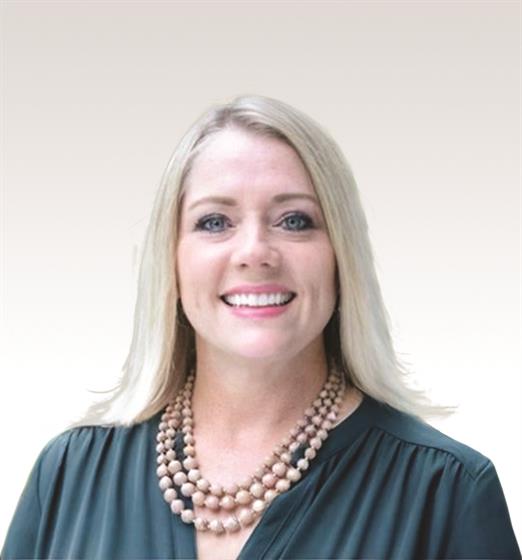
Meg Roa
Meg Roa is a 30-year veteran educator with experience as a classroom teacher, literacy coach, and district administrator across all K-12 levels. She is currently a professional learning and development K-12 specialist for Volusia County Schools, Florida, the fourth largest district in the state with more than 70 schools. In this role, Meg has had the opportunity to lead and partner with teachers, school and district administrators, and leadership teams using collaborative structures such as lesson study and collaborative inquiry to support district and school improvement efforts. Meg has presented her work around the development and implementation of effective collaborative structures, using continuous improvement processes to set goals and measure for impact, and developing teacher leadership at state, national, and international conferences including Learning Forward Annual Conferences and the Carnegie Foundation Summit on Improvement in Education. Meg is a lifelong learner who is passionate about partnering with colleagues and supporting their goals in implementing proven and powerful practices that effect positive changes for all students.
Check out her consulting services here: Request Availability | Corwin Press
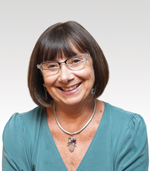
Carol Pelletier Radford
Carol received her Education Doctorate from the Harvard University Graduate School of Education, where she focused her studies on mentoring and teacher leadership. She is also a certified yoga teacher who practices meditation and shares mindfulness strategies with educators through her online courses and website. Her podcast Teaching With Light features the stories of teachers and inspirational leaders. Her next passion project is the creation of a Teacher Legacy Network, where retired teachers can share their wisdom with the next generation of teachers.
You can learn more about Carol, find free resources, videos, meditations, courses, and all of her books at mentoringinaction.com/.
Twitter: @MentorinAction
Facebook: @MentoringinAction4Teachers
Instagram: @cpradford
Related Titles
This is a carousel with related book cards. Use the previous and next buttons to navigate.
